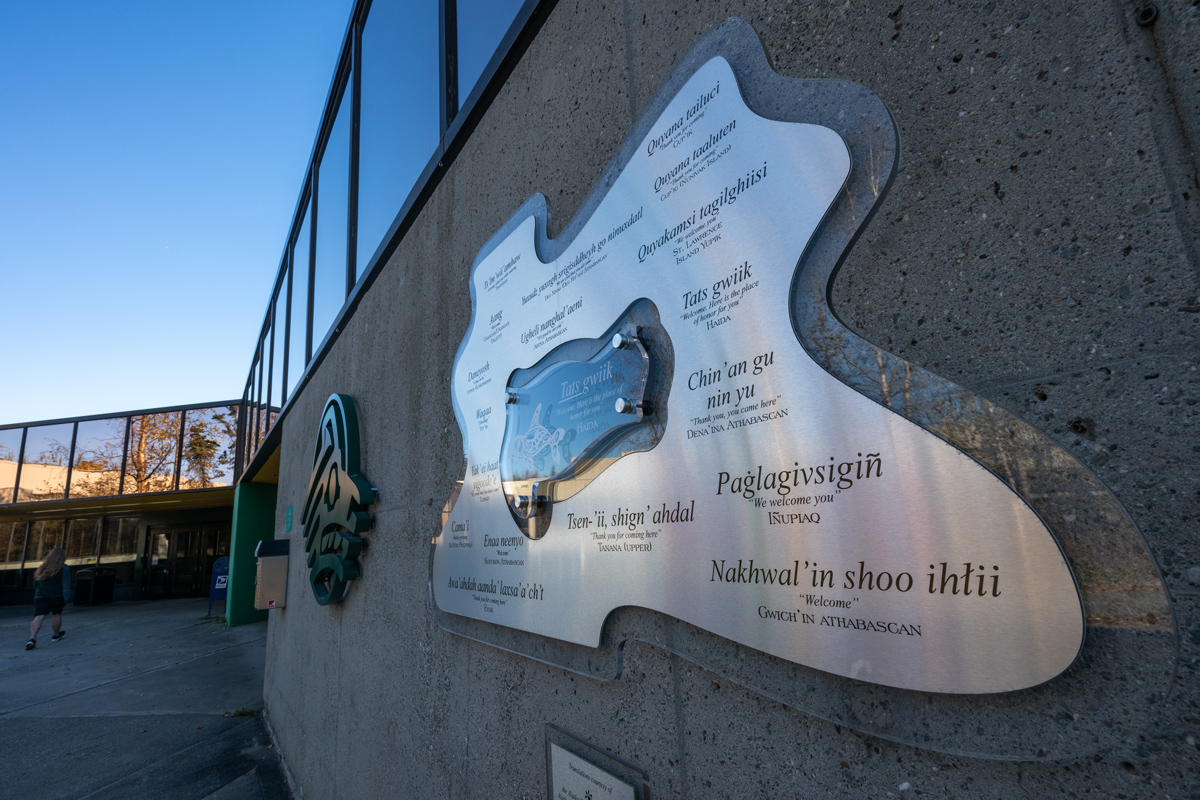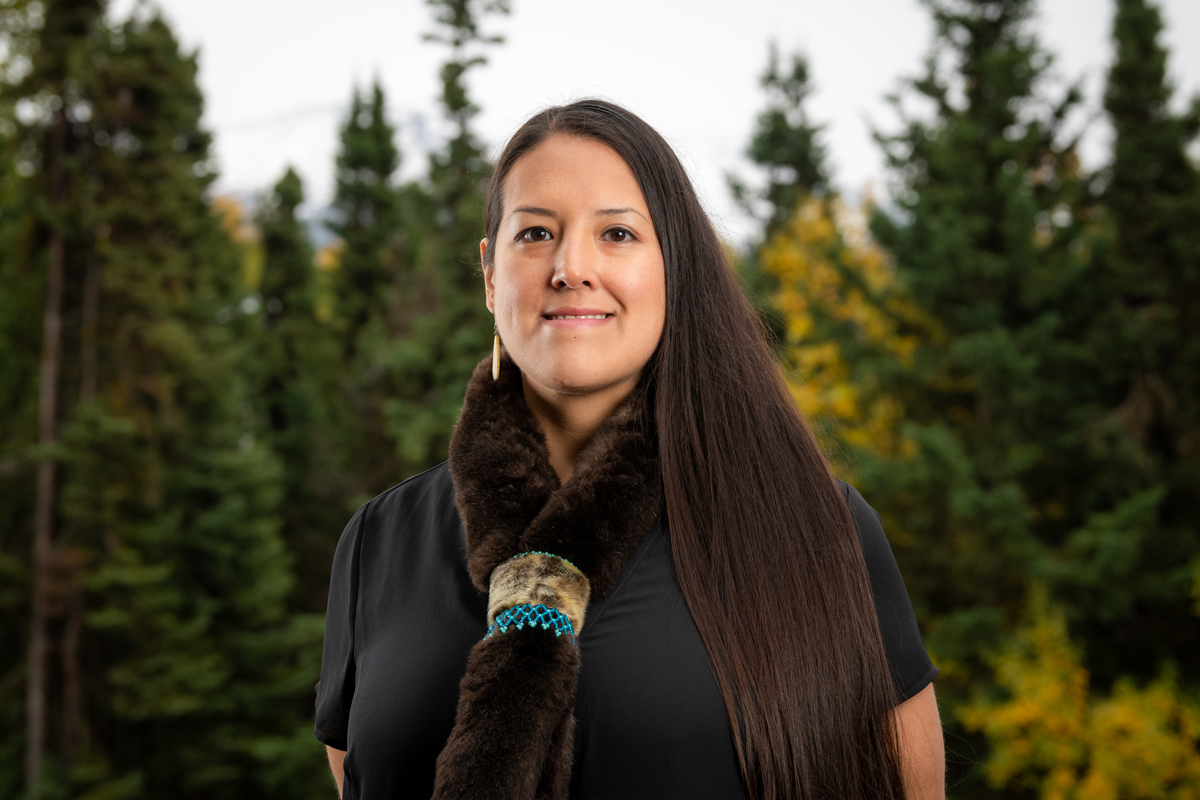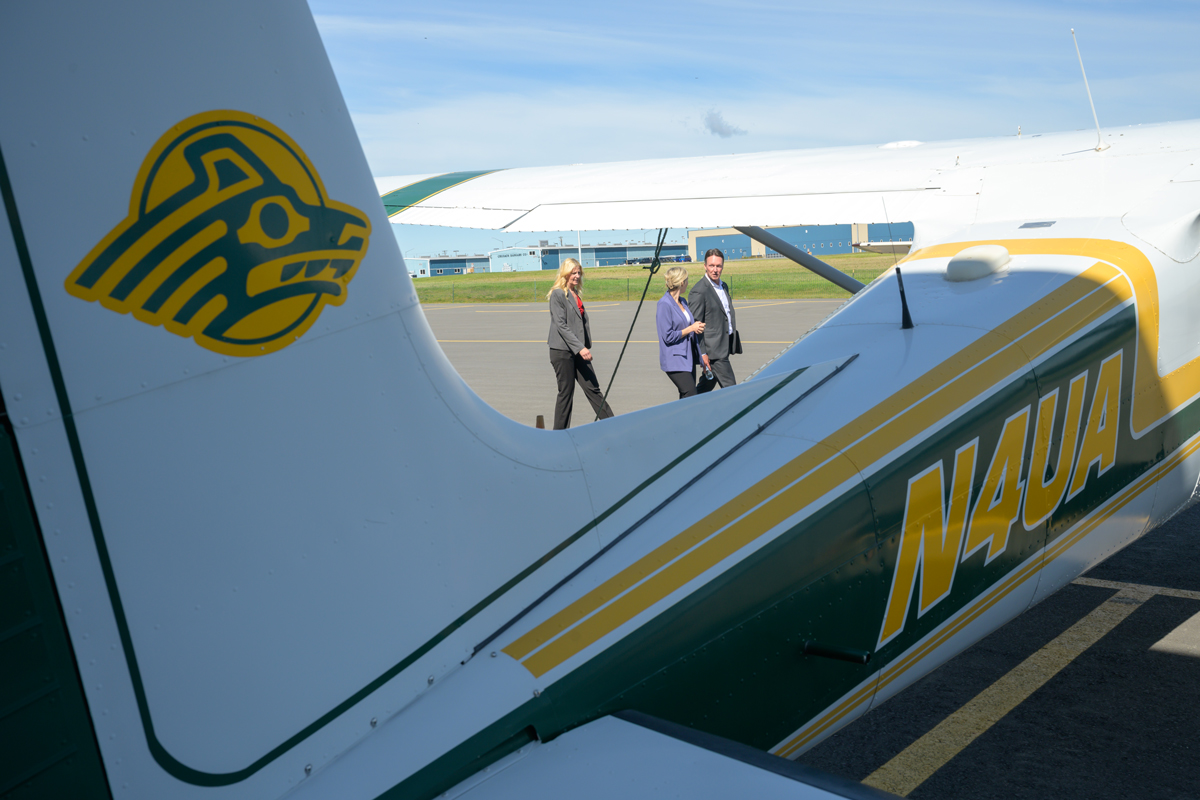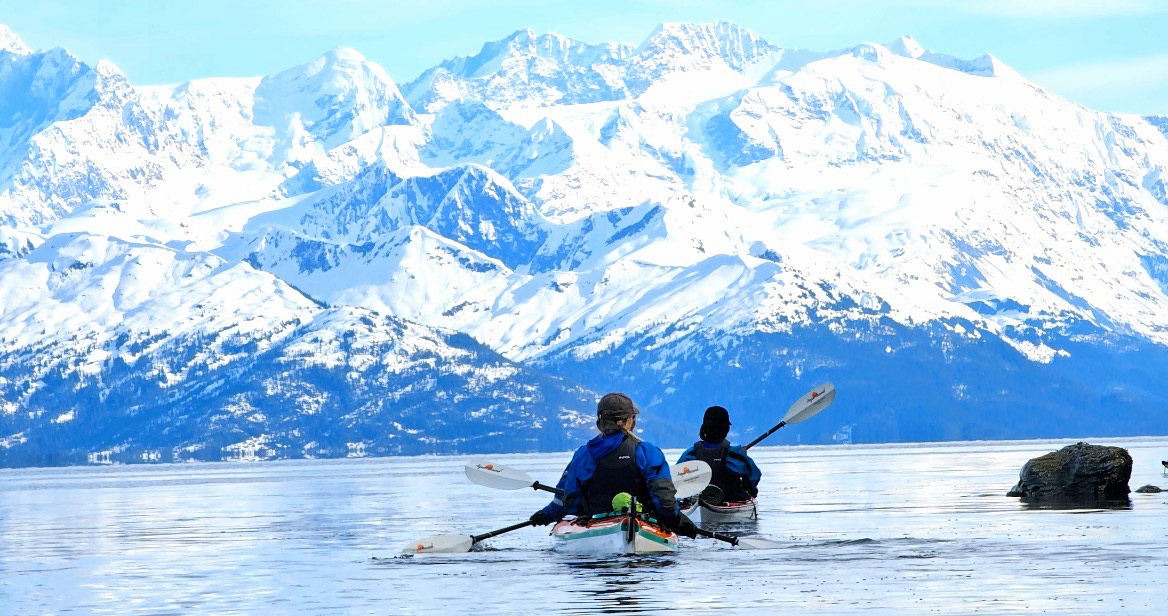Studying Biofouling in Port Valdez
by Keenan James Britt |
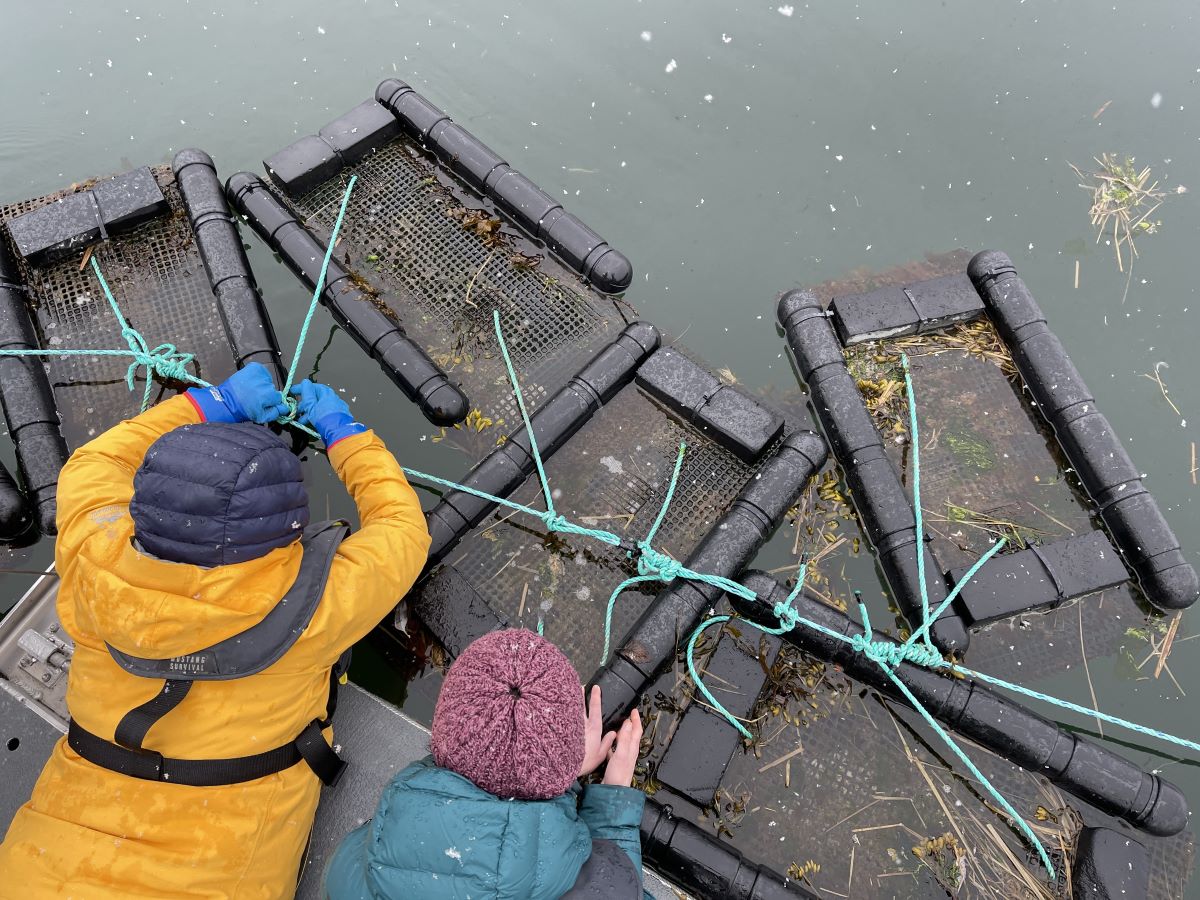
Hannah Bogdan, a second-year student at Prince William Sound College (PWSC), has been conducting research this academic year in collaboration with the Valdez Native Tribe (VNT), UAF, City of Valdez and Prince William Sound Regional Citizens' Advisory Council.
Bogdan studies biofouling on oyster farms at the VNT Research and Experimental Mariculture site, located in Port Valdez between Gold Creek and Shoup Bay. Biofouling refers to the detrimental and unwanted accumulation of organisms (including plants, animals and algae) on surfaces manufactured by humans.
Originally from Chicago, Illinois, Bogdan moved to Valdez in fall 2022 to pursue PWSC’s program in outdoor leadership. During her first semester, she enrolled in BIOL A124, Biota of Alaska, to complete the required science credits for her degree. The course was taught by Amanda Glazier, Ph.D., assistant professor of biology and environmental science. Glazier offered students in the course the opportunity to participate in research at the VNT oyster farm the following semester.
“At that time I wasn’t interested in environmental science. I was focused on outdoor leadership,” said Bogdan, “I was like, ‘I don’t know anything about oysters. I don’t know anything about any of this.’” However, after Glazier offered to help her prepare for the research, Bogdan agreed to take the opportunity.
The VNT oyster farm consists of a series of surface-level baskets containing introduced Olympia oysters (Ostrea lurida) that have been in the waters of Port Valdez since summer 2022. The oysters subsist by consuming algae that they filter from the water. Bogdan and Glazier’s research seeks to develop effective methods for monitoring biofouling communities and nuisance species on the oyster baskets. Traveling by boat and kayak to check the baskets, they found that biofouling growth built up over time. They discovered several species of algae (rockweed, sea fir and dark sea lettuce) as well as animals (crustacean amphipods) residing in the oyster baskets.
Bogdan’s ongoing project developed into a leadership role in the spring 2024 semester. “Some students in the MNRT program asked if they could get some more field work experience,” said Bogdan, referring to students in PWSC’s marine natural resources technician program, “So I’m starting to take out two students every sampling.”
Bogdan hopes her work will contribute to developing oyster farming as an industry in Valdez: “Right now, this is a research-based oyster farm, but the plan is to commercialize it, so it can bring more jobs to Valdez.”
Bogdan recently presented her research at the Kachemak Bay Science Conference, held March 17-20 at the Kenai Peninsula College, Kachemak Bay Campus in Homer. After completing her associate degree in outdoor leadership at PWSC, Bogdan will continue her education in Alaska. She plans to pursue a B.A. in environmental sciences at UAS in Juneau, beginning in the fall 2024 semester.
 "Studying Biofouling in Port Valdez" is licensed under a Creative Commons Attribution-NonCommercial 4.0 International License.
"Studying Biofouling in Port Valdez" is licensed under a Creative Commons Attribution-NonCommercial 4.0 International License.











